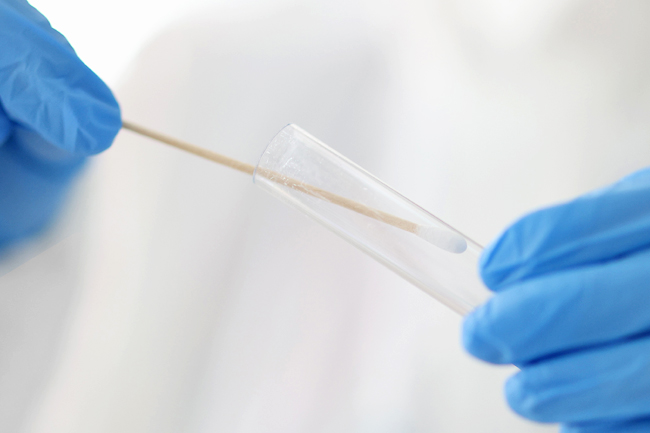UPI – A new test called CheekAge, based on a quick swab of cells in the mouth, might someday be used to predict how long a person has to live, developers report.
The test tracks what are known as epigenetics: The way in which a person’s environment or lifestyle affects how their genes function throughout the life span. A key marker of epigenetics is DNA methylation, molecular changes in DNA segments that can alter a gene’s activity without changing its essential composition.
The new CheekAge test is a kind of “epigenetic clock” that analyses specific epigenetic DNA methylation markers in cells swabbed from the inside of the cheek.
Certain patterns of methylation appear to be associated with expected life span, according to researchers at Tally Health, the New York company that is developing the test.
“Specific methylation sites are especially important for this correlation, revealing potential links between specific genes and processes and human mortality captured by our clock,” explained study first author Dr Maxim Shokhirev, head of computational biology and data science at Tally Health.

His team published its findings on Tuesday in the journal Frontiers in Ageing. The study was funded by Tally Health and the Wellcome Trust.
The new findings were based on data from the Lothian Birth Cohorts (LBC) program of the University of Edinburgh. It’s been tracking the lifestyles, genetics and health of over 1,500 Scottish people born between 1921 and 1936.
The participants have undergone DNA methylation testing using blood cells once every three years. Over 450,000 separate methylation sites on their genomes were tested.
Those blood cells’ epigenetics results were compared to results from CheekAge tests.
“Our results show that CheekAge is significantly associated with mortality in a longitudinal dataset and outcompetes first-generation clocks trained in datasets containing blood data,” concluded the authors.
More specifically, “for every increase by a single standard deviation in CheekAge,” the odds for death from any cause rose by 21 per cent, the researchers said in a journal news release.
Right now, blood-based epigenetic testing is the gold standard, but of course a simple cheek swab would be easier on patients than a blood draw.
Based on the new study, results from CheekAge appear to mirror those of blood tests, Shokhirev said.
“The fact that our epigenetic clock trained on cheek cells predicts mortality when measuring the methylome in blood cells suggests there are common mortality signals across tissues,” he said.


















































